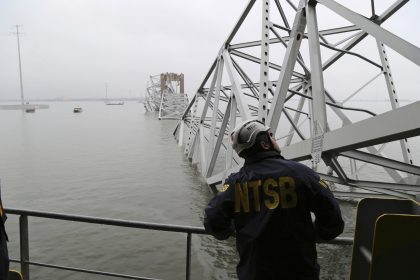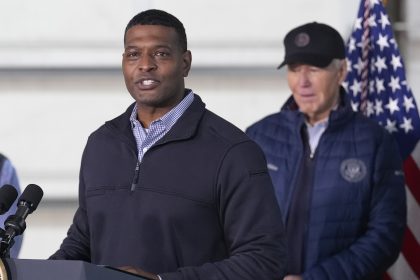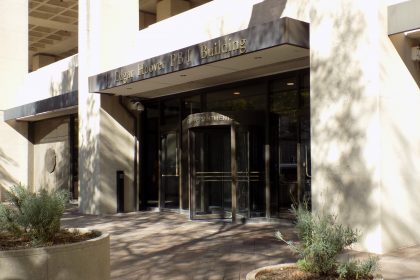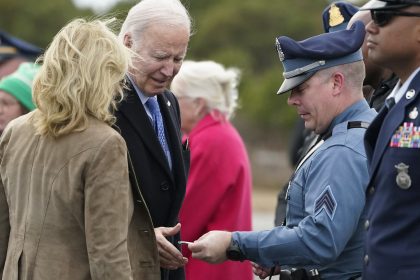Blue Dogs Seek to Keep Momentum Going After Positive Start to Infrastructure Talks
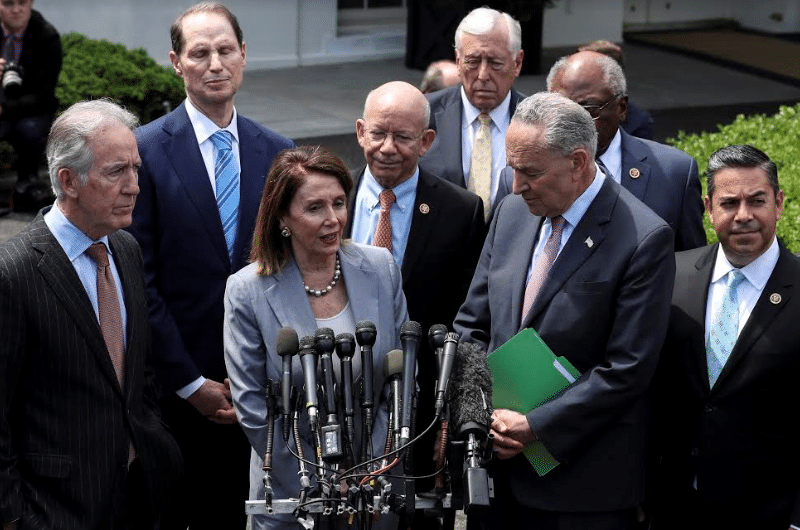
Representatives Joe Cunningham, D-S.C., and Mikie Sherrill, D-N.J., responded to word of a positive meeting between the White House and congressional leaders by saying it’s time to put politics aside in the name of creating good-paying jobs to rebuild America’s crumbling roads and bridges.
In a written statement Cunningham and Sherrill, co-chairs of the Blue Dog Task Force on Infrastructure and Job Creation said “[o]ur constituents sent us to Congress to deliver on our promise to fix our nation’s crumbling infrastructure from building the Gateway Tunnel in New Jersey to mitigating coastal flooding in South Carolina.
“That’s why the Blue Dogs were the first Democratic caucus to call for the prioritization of infrastructure this Congress,” they continued. “This is an opportunity for both parties to come together to create good-paying jobs in communities across the country and improve the lives of Americans. We hope this signals a welcome opportunity for leadership and the President to put politics aside and do what’s right for the American people, and we’re ready to work with both parties to get this done.”
The Blue Dog Coalition is a caucus of the U.S. House of Representatives comprised of fiscally-responsible Democrats who advocate for commonsense approaches to addressing the nation’s challenges.
In this case they were responding to a rare, high-profile bit of bipartisanship on the parts of President Donald Trump and Democratic leaders of the U.S. House and Senate who agreed Tuesday to work toward a $2 trillion infrastructure plan.
Left unresolved during the meeting between Trump, Senate Minority Leader Chuck Schumer and House Speaker Nancy Pelosi was how to pay for the plan, a key objective of the Blue Dogs, but the parties to the meeting all agreed that the construction initiative should include revamping ailing roads and bridges, rebuilding the nation’s freshwater system, and extending broadband coverage.
Tuesday’s meeting was a marked contrast to the last session between Trump, Pelosi and Schumer which ended with Trump storming out of the oval office and the Democrats somewhat dazed by what had transpired.
As they left the White House Tuesday afternoon, Pelosi and Schumer seemed ebullient, with the House speaker announcing, “We did come to one agreement: that the agreement would be big and bold,” and Schumer talking about the “good will in the meeting.”
In previous meetings, the president had resisted working with the Democrats, saying he simply couldn’t if “these investigations continue,” a reference to several ongoing House inquiries into everything from Russian involvement in the 2016 elections to Trump’s personal finances.
On Tuesday, Schumer said, the president didn’t even bring the investigations up, this in the wake of the release of special counsel Robert Mueller’s redacted report on Russia meddling in the 2016 elections, and on a day when Trump, his family and the Trump Organization filed a lawsuit against Deutsche Bank and Capital One in an attempt to block congressional subpoenas seeking their banking and financial records.
Schumer said the two sides agreed that infrastructure investments create jobs and make the United States more competitive economically with the rest of the world. Most importantly, Schumer said, “we agreed on a number.”
“Originally, we had started a little lower. Even the president was eager to push it up to $2 trillion,” Schumer said.
Pelosi and congressional Democrats requested the meeting with Trump to discuss launching an ambitious building program that’s a top priority for the party and has been a rare area of potential bipartisan accord with Republicans.
The Democrats also put the onus on Trump to come up with a plan for how to pay for the package, and said they would meet again in three weeks, when the president will present his ideas. They noted that a bill is unlikely to pass the Senate “if we don’t have him on board.”

















